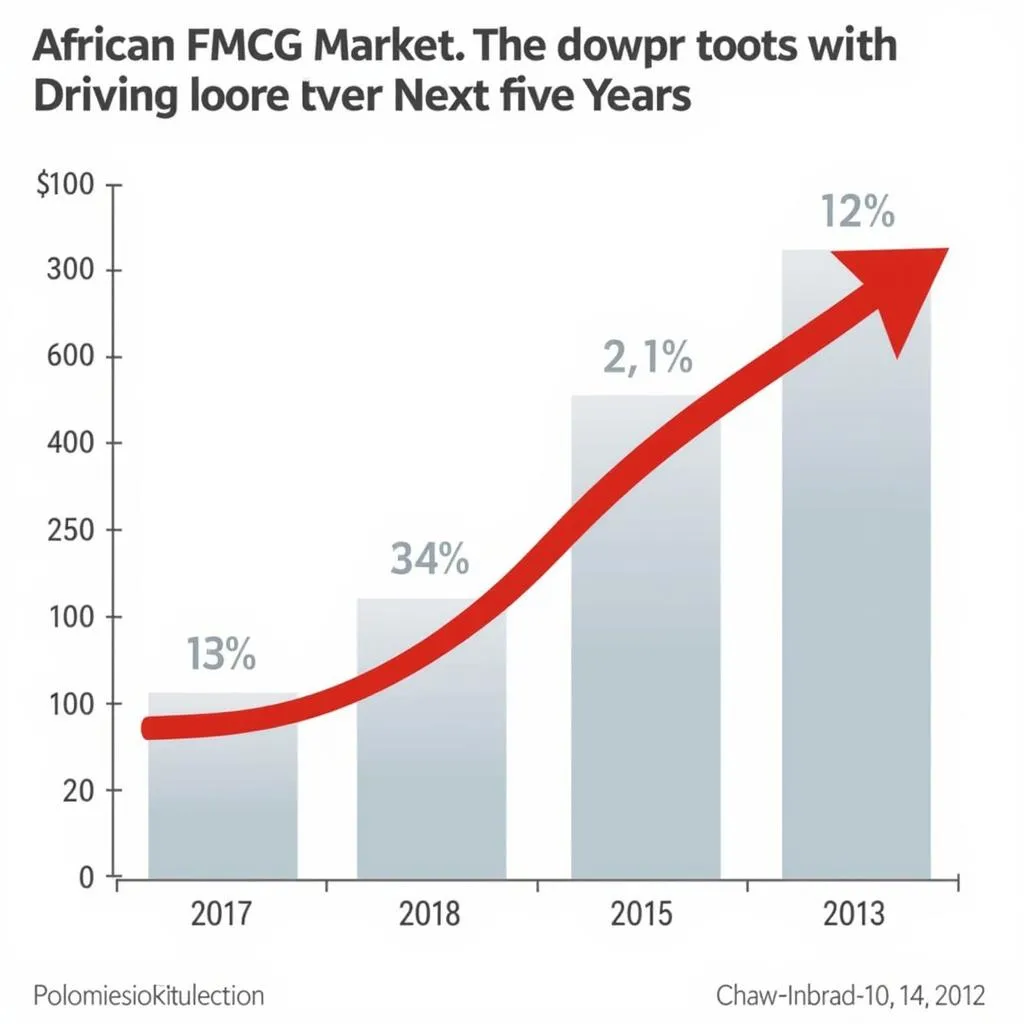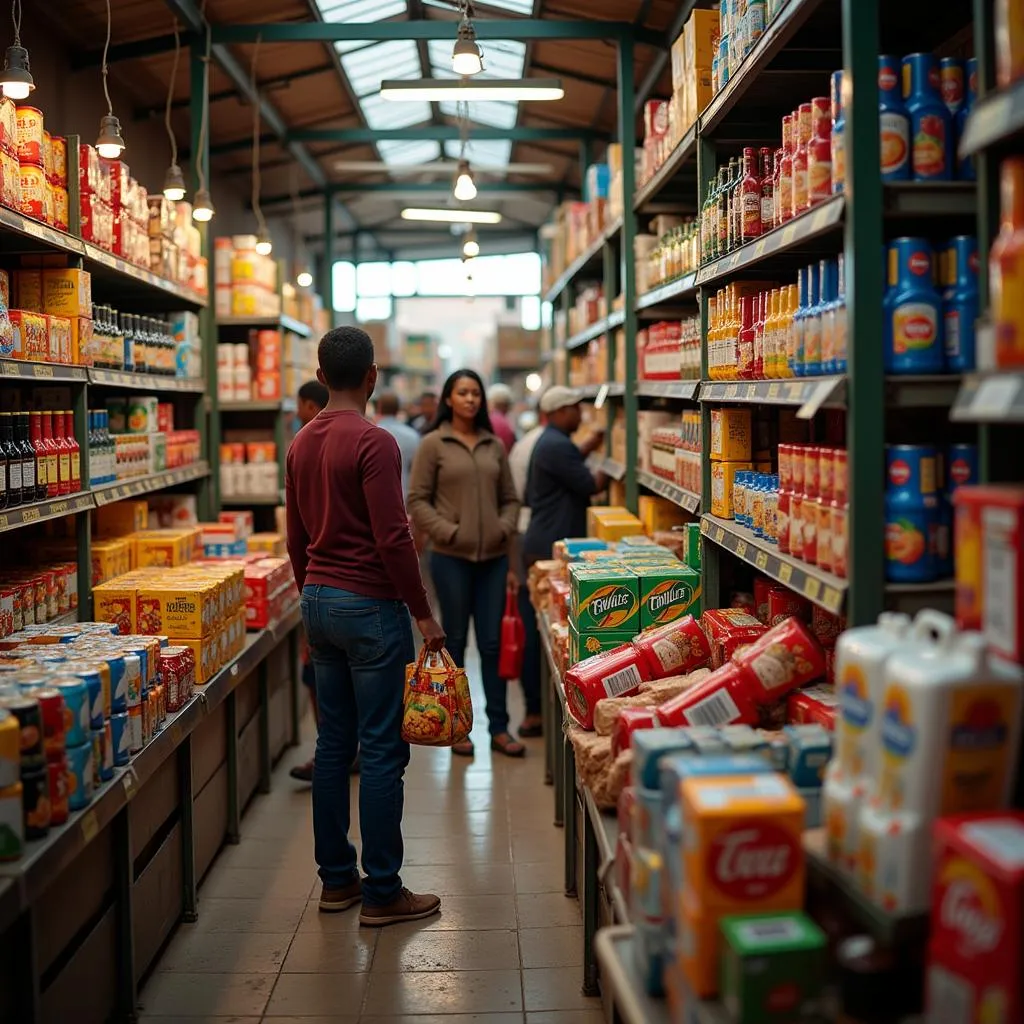The African FMCG Market: A Continent of Opportunity
The African FMCG (fast-moving consumer goods) market is experiencing a period of remarkable growth, fueled by a burgeoning population, increasing urbanization, and a rising middle class. This presents a unique opportunity for businesses looking to tap into a dynamic and evolving consumer base.
 African FMCG Market Growth
African FMCG Market Growth
Understanding the Dynamics of the African FMCG Market
Several key factors contribute to the African Fmcg Market’s unique characteristics and growth potential:
- Population Growth: Africa boasts the world’s fastest-growing population, with a young demographic increasingly driving consumer spending.
- Urbanization: As more Africans migrate to urban centers, their consumption patterns shift towards convenience and branded products.
- Rising Middle Class: The expanding middle class in many African countries signifies increased purchasing power and demand for higher-value FMCG products.
- Technological Advancements: Mobile penetration and internet access are transforming how consumers interact with brands, shop for products, and make payments.
Key Trends Shaping the Future of FMCG in Africa
- E-commerce Expansion: Online retail platforms are gaining traction, providing consumers with wider product choices and convenient shopping experiences.
- Demand for Local Products: A growing sense of cultural pride is driving demand for locally sourced and produced goods.
- Sustainability Concerns: Consumers are increasingly conscious of the environmental impact of their purchasing decisions, favoring eco-friendly and sustainable products.
- Health and Wellness Focus: There’s a rising demand for healthier food and beverage options, natural ingredients, and products promoting well-being.
Challenges and Opportunities for FMCG Businesses in Africa
While the African FMCG market is brimming with potential, businesses must navigate certain challenges:
- Infrastructure Gaps: Inadequate infrastructure in some regions can hinder distribution, logistics, and supply chain management.
- Regulatory Environment: Navigating diverse regulatory frameworks across different countries can be complex.
- Informal Sector Competition: The presence of a large informal economy can pose a challenge to established FMCG companies.
However, these challenges also present opportunities for innovation and strategic partnerships:
- Investing in Local Production: Establishing local manufacturing facilities can reduce reliance on imports, create jobs, and cater to local tastes.
- Developing Distribution Networks: Building robust distribution channels tailored to local contexts is crucial for reaching dispersed populations.
- Embracing Digital Solutions: Leveraging technology for marketing, sales, and distribution can enhance efficiency and reach a wider audience.
 African Consumers Shopping for FMCG Products
African Consumers Shopping for FMCG Products
Success Stories: African FMCG Companies
The growth of the African FMCG market has paved the way for the emergence of successful homegrown companies. African FMCG companies are proving their mettle by developing products tailored to local needs and preferences.
For instance, companies like Dangote Group and Tiger Brands have become household names, demonstrating the potential for African businesses to thrive in this sector.
“The key to success in the African FMCG market lies in understanding the nuances of local consumer behavior and adapting strategies accordingly,” says Amina Ali, a consumer behavior expert at the University of Nairobi.
Conclusion
The African FMCG market offers a compelling proposition for investors and businesses seeking growth opportunities. By understanding the unique dynamics, challenges, and trends shaping this market, companies can position themselves for success in one of the world’s most dynamic and rapidly evolving consumer markets.

